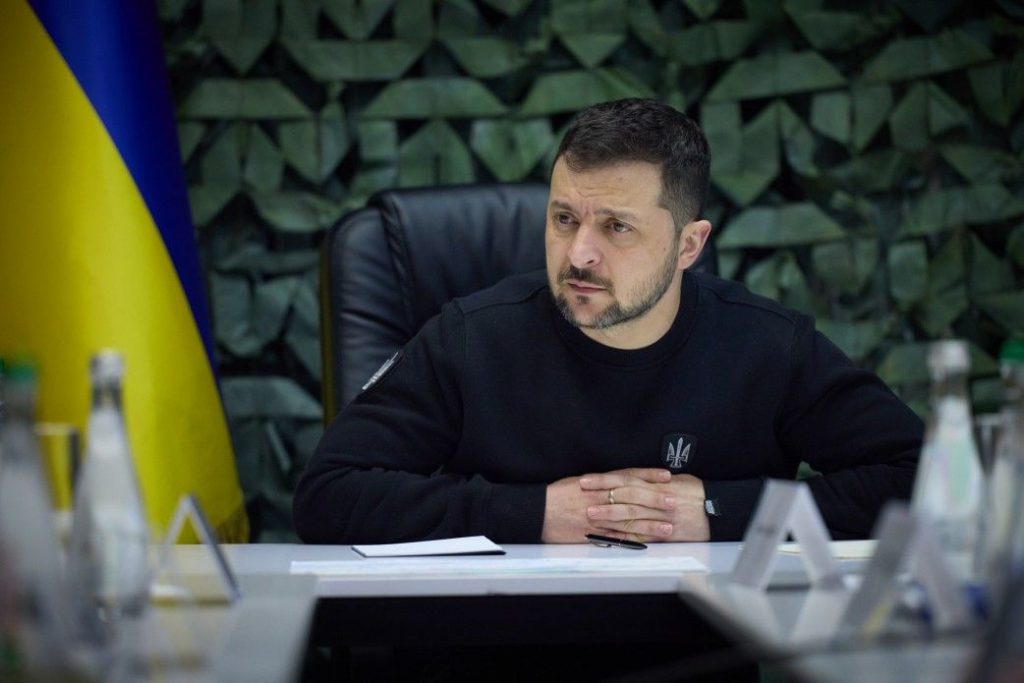Ukraine’s President Volodymyr Zelensky announced that Ukrainian forces had regained control in the Russia-Ukraine border area of Kharkiv Oblast, during his evening address on May 24. Zelensky visited Kharkiv on the same day, where a Russian missile attack destroyed one of Ukraine’s largest printing houses, killing seven people. During his visit, Zelensky met with the Ukrainian military, local authorities, and special services to discuss the ongoing situation. He expressed gratitude to the units involved in combat missions in the region and discussed future tasks on the front line based on information from military intelligence.
Russia launched a new offensive in northern Kharkiv Oblast on May 10, focusing on the directions of Lyptsi and Vovchansk, settlements just a few kilometers south of the Russia-Ukraine border. Russian forces managed to advance up to 10 kilometers into the region but were halted by the first line of defense. Commander-in-Chief of Ukraine’s Armed Forces Oleksandr Syrskyi stated on May 23 that Russian troops have started deploying reserves from different sectors of the front line but are struggling to support active assault operations in the area. This offensive in Kharkiv Oblast is putting a strain on Ukrainian defenses and forcing difficult decisions about where to allocate reserves.
The two-pronged assault by Russian forces in Kharkiv Oblast is exploiting Ukraine’s troop shortage, leading to challenging decisions on reserve deployment. Two weeks into the offensive, one group of Russian forces is already engaged in street fighting in the town of Vovchansk. The ongoing offensive is stretching Ukrainian defenses and highlighting the need for support in defending against Russian aggression. The situation in Kharkiv Oblast is intensifying as both sides continue to engage in combat operations, underscoring the importance of bolstering Ukrainian defenses and addressing the challenges posed by Russian military incursions.
President Zelensky’s visit to Kharkiv and his announcement of regaining control in the Russia-Ukraine border area demonstrates Ukraine’s determination to defend its sovereignty and protect its citizens. The destruction caused by the Russian missile attack on the printing house serves as a stark reminder of the human cost of the conflict. The Ukrainian military, local authorities, and special services continue to work tirelessly to repel Russian forces and safeguard the region from further incursions. The ongoing conflict in Kharkiv Oblast underscores the urgent need for international support and solidarity in standing with Ukraine against Russian aggression.
The relentless Russian offensive in Kharkiv Oblast is a stark reminder of the ongoing threat posed by Russian aggression and the importance of supporting Ukraine in its fight for independence. The sacrifices made by Ukrainian forces and civilians in defending their country against Russian incursions exemplify the resilience and courage of the Ukrainian people. The international community must stand united in condemning Russian actions and providing assistance to Ukraine in its efforts to repel the invasion. The situation in Kharkiv Oblast serves as a crucial battleground in the larger conflict between Ukraine and Russia, highlighting the need for continued support for Ukraine’s sovereignty and territorial integrity.
In the face of escalating tensions and continued aggression from Russia, Ukraine remains steadfast in its determination to defend its borders and protect its citizens. President Zelensky’s leadership and the efforts of the Ukrainian military underscore the commitment to safeguarding Ukraine’s sovereignty and independence. The ongoing conflict in Kharkiv Oblast is a stark reminder of the human cost of war and the need for international support to help Ukraine resist Russian aggression. By standing united in support of Ukraine’s struggle for independence, the international community can send a clear message to Russia that its attempts to undermine Ukraine’s sovereignty will not succeed.


